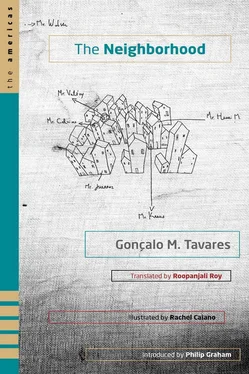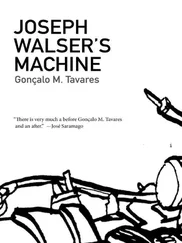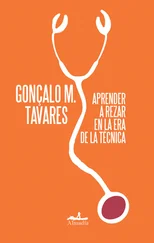The huge shovel always remained on the ground, inert but visible. And Calvino used the minuscule coffee spoon to carry out the task of transporting the mound of earth from one point to the other, securing it with all available muscles. When he used the tiny spoon, it was almost as though every little bit of earth was caressed by Mister Calvino’s attentive curiosity.
Patiently carrying out the task at hand, without desisting or using the shovel, Calvino felt that he was learning many great things with a tiny spoon.

The Sun

Calvino had a book in his hands whose cover had been almost completely discolored by the sun. What had earlier been a dark green had now been transformed into a soothing, almost transparent green.
He looked at the other books on the shelf. All of them were losing their original color, as though the rays of the sun had chewed or nibbled away — yes, that seemed to be the work of a subtle nibbler — at the book covers.
One book, for example, which had been placed less than a month ago in that corner of the house where, during certain hours of the day, the sun’s rays fell directly, now had a rather curious appearance: only one line of the upper part of the book had faded. The rest of the cover on the lower part of the book still retained the brilliance of its original coloring. Due to some unknown association of ideas, Calvino thought of the differences in coloring of areas of the body that were covered or not covered by bathing suits during summer.
He again looked at the shelf and at the faded covers and, suddenly, it was as though everything had become clear: the origin of the phenomenon, the true reasons for the happening that someone would have classified, at first glance, as a chemical happening. But it wasn’t as simple as that. Calvino was not merely dealing with a change in substances, this was a force, a strong force that almost had fragile muscles. And this insufficient force originated from the sun: the sun wanted to open the books, it concentrated its rays, with all its might, on the cover of a book because it wanted to open it, it wanted to see the first page, to read, to reflect upon great phrases, to be moved by poems. The sun simply wanted to read, it yearned to do so like a child who was about to enter school.
Calvino meditated. In fact, he could not recall ever having seen a book with its pages open to the sun. It was far more common for people to put down a book on a table or a garden bench (or even on the ground) outdoors, but always, now that Calvino came to think about it, always with the hard cover enclosing the book’s contents, denying access to the words inside.
It was thus time for someone to do something. It was time for someone to reciprocate that gentle touch of light that the sun projected on men’s faces on certain days, a calm caress, but one that saved men from great tragedy, from despair, sometimes even from suicide.
Calvino once again looked at the books on the shelf that was caressed by the sun. He quickly ran his eye over the spines. With a great deal of attention he chose the most appropriate book; it was obvious that he was not choosing a book in accordance with his own tastes, but instead according to someone else’s taste. And finally he picked out a book. “Here’s a good first book to start with!” exclaimed Calvino to himself.
He then opened the book to the first page, after the technical details (who would want to read those?), and put the book down like that, opened to the beginning of the narrative, turned toward the point where the sun’s rays usually appeared: “Alice was beginning to get very tired of sitting by her sister on the bank, and of having nothing to do.”
Tomorrow, he would turn the page again. And over the course of the following days he would continue to do so until the end of the volume.
Mister Calvino Takes a Walk

He sometimes got excited with ideas, not with the world. For Mister Calvino, having a life did not mean merely passing through the turbulent experiences inherent to human closeness and distance. For him, whoever did not have his own thoughts, did not have his own life. Calvino could feel an idea passing through his head just as he could feel the cold on his neck. Of course, this sensation was not tangible like a piece of furniture, it was an ephemeral feeling, but nonetheless an exciting one.
On certain days, his brain got him sufficiently excited, and thus he could avoid other circumstantial emotions. At least those were controllable.
In fact, he clearly remembered the misfortune that had befallen a friend of his. Since his face was paralyzed, this friend always seemed to be laughing, irrespective of what happened.
Mister Calvino suddenly recalled that, according to one historian, a king — whose name was Mahmud — had invaded India seventeen times during a twenty-nine-year reign.
He had taken a vow to invade India every year, but reality does not always conform to the plans of a human heart.
“During a lifetime,” thought Calvino, “doing everything seemed to be a lot, and it was impossible to quantify everything and for this very reason it was impossible to verify it. If you couldn’t manage it, at least you could try to do half of everything, which had the additional advantage of being an exact number.” So, unlike the prognostications of some overly young writers, Calvino decided at that very moment that he wouldn’t do everything, he would instead do half of everything.
Well, he had just woken up and, since he did not have any predefined tasks, he had the entire day at his disposal: as though on a platter. To begin with, he would take care of imperfectly describing exactitude. He found it essential to have an initial irregularity, a false step, the inability to understand a part, an expectation created by a surprising fact.

He looked around him.
Nothing. Everything was just as it was meant to be.
He then remembered an absurd dialogue:
“I am sad because I have a sad face.”
“And that’s the only reason?”
“Yes.”
But what was this? Human beings were not so simple. Being sad was not just an official physiognomy (thought Calvino), it was more than that.
The previous afternoon, for example, Calvino had climbed up on a stool.
“Where are you?” asked the blind Mister Bettini, who had gone to visit him.
“On top of a stool,” answered Mister Calvino.
At that point, just like someone who was merely inquiring what time it was, Mister Bettini then asked, in his habitually brusque fashion, “From where you are, can you clearly distinguish the Gods from the sheep that are grazing?”
“What?” said Calvino, utterly stupefied.
Why had he remembered this now? He had no idea.
The human memory was not a simple storehouse of old things to which he had the key. Oh well. He proceeded without finding a satisfactory explanation.
In fact, he felt that on certain days he was a rather strange personality.
He saw himself as a pilgrim, but he had no goal and neither did he have a map.
He wanted to go directly to a place where he felt lost, with no detours.
Early in the morning, as though he were talking about the world, Calvino said of the only machine he had at home, “As it is, it never worked, and now it’s got spoiled!”
Читать дальше















